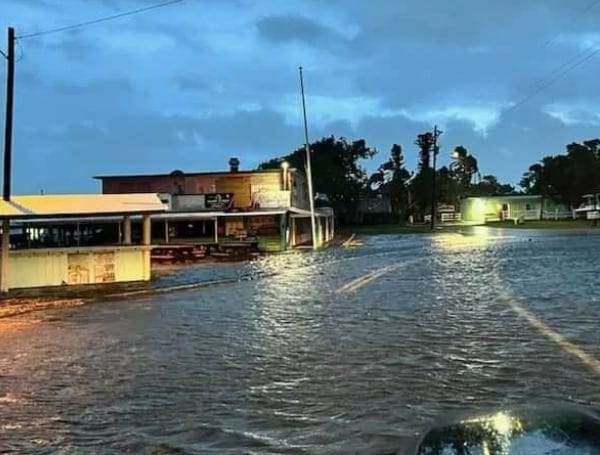Hurricane Ian Flooding In Florida (TFP File) State insurance regulators last week signed off on a plan that will lead to policyholders throughout
State insurance regulators last week signed off on a plan that will lead to policyholders throughout Florida paying extra on their bills because of property-insurer insolvencies.
Insurance Commissioner Mike Yaworsky issued an order that approved a request by the Florida Insurance Guaranty Association to collect a 1 percent emergency “assessment” to cover costs of claims.
Insurers will collect the assessments from policyholders starting in October and send the money to the Florida Insurance Guaranty Association, according to the order.
In the news: DeSantis Vs. Disney Fight In Florida Continues
The Florida Insurance Guaranty Association, or FIGA, is a non-profit agency created by the state to handle claims when insurers become insolvent. It has issued a series of assessments in recent years amid financial problems in the property-insurance industry. Seven property insurers have been deemed insolvent since early 2022.
FIGA’s board on March 31 approved seeking the emergency assessment after the insolvency of United Property & Casualty Insurance Co. That insolvency, which led to the appointment of a receiver for the company in February, is expected to lead to FIGA handling hundreds of millions of dollars in claims.
Under the plan approved last week by regulators, FIGA is borrowing $150 million in short-term financing to help pay claims. It then will issue up to $750 million in revenue bonds to pay off the short-term financing and to pay remaining claims. Money from the assessments will be used to pay off the bonds.
In the news: Without A Trace: Florida Mom Calandra Stallworth Missing Since 2017
The FIGA website said the 1 percent assessment will continue until the “bonds have been paid in full.”
“The emergency assessment is necessary to secure funds for the payment of covered claims, to pay the reasonable costs to administer such claims, including claims resulting from insurance companies that have become insolvent or may become insolvent as a result of losses incurred due to hurricanes including but not limited to Hurricanes Irma, Michael and Ian, and to secure bonds issued to generate revenues to pay claims,” FIGA Executive Director Corey Neal wrote in an April 4 letter to Yaworsky.
The assessment will come as property-insurance policyholders throughout the state face soaring premiums. Assessments will also be collected on a variety of types of other insurance policies, though they will not apply to auto insurance.
FIGA also collected a 0.7 percent assessment in 2022. It began collecting an additional 1.3 percent assessment on July 1, 2022, that is scheduled to end June 30, according to information on the agency’s website. In addition, policyholders are being hit this year with another 0.7 percent assessment that will end Dec. 31.
Android Users, Click To Download The Free Press App And Never Miss A Story. Follow Us On Facebook and Twitter . Signup for our free newsletter .
Private property insurers have dropped hundreds of thousands of policies and sought large increases during the past two years because of financial problems. Along with resulting in FIGA assessments, the problems in the industry have led to explosive growth at the state-backed Citizens Property Insurance Corp.
Many state leaders have long warned that If Citizens does not have enough money to pay claims, it could have to collect assessments on policyholders throughout the state. Citizens, which had 1.248 million policies as of April 7, did not need to turn to assessments after last year’s Hurricane Ian and Hurricane Nicole.
Android Users, Click To Download The Free Press App And Never Miss A Story. Follow Us On Facebook and Twitter . Signup for our free newsletter .
We can’t do this without your help; visit our GiveSendGo page and donate any dollar amount; every penny helps.

